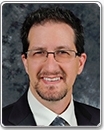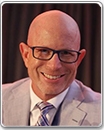
Practice Perfect 855
Advice for Clerks 2023
Advice for Clerks 2023

It's that time of the year when our third-year podiatric students at various schools begin their 4th year clerkships. As many of you might recall, this is a nerve-wracking milestone. So, in the attempt to make this transition a little more productive for our young colleagues, here is some advice from someone who has spent time with clerks.
- Remember it really is a one-month long interview - This idea likely won't make you less nervous, but it is important to understand that this is a major aspect of the month, at least for the residency program with which you are clerking. The entire time they are thinking, “might this be a good resident for our program?” Show the best aspects of yourself. It really is very difficult to change a first impression, so if you look timid, standoffish, or appear to have a poor work ethic, then you will likely not get that program.
- It's a month-long interview for the residency too - This is also your chance to learn about that residency. Do they have a structure you like? Are they academic? What are the surgical numbers? What kind of clinic and hospital education do you receive as a resident? Will this program be a good fit for you? Be sure to ask specific questions and learn as much as you can about the program. When you do your next clerkship, compare them against each other, talk to your classmates and find out what other programs do and compare those as well. Knowledge is power.
- Be prepared academically - If you haven't been studying as you are seeing patients in clinics and rotations, then you have been doing your third year wrong. It is not too late, though. First, look up the names of the attendings at the clerkship and then find out what papers they have written. Many podiatrists at residency programs publish papers, and it would be helpful for you to understand what they are interested in. This will at least give you an opportunity to open conversations about those topics. Make sure you have spent time learning about those topics as well. You should also have a strong knowledge base of common topics within podiatry. You should have a deep knowledge of diabetic complications, trauma, common foot complaints such as hammertoes and bunions amongst many others and have a deep knowledge of the common medications we use in the profession such as antibiotics or opioids.
Look up the names of the attendings at the clerkship and then find out what papers they have written, and read them. It will be helpful for you to understand what they are interested in
- Be prepared physically - First, you should be ready to work longer hours than anyone else at that program. Be the first to arrive and the last one to leave. This will be physically difficult, and you should be ready. Second, it is important that you are also ready to hand out supplies at a moment’s notice. For example, if you are on rounds you should have dressing supplies, cotton tipped applicators, a scalpel, or a pen light on the off chance that somebody might need it. If you have to “run and get that supply” then you have already failed.
Be the first to arrive and the last one to leave.
- Make sure your skills are ready to go - Do you know how to suture? Are you able to apply postoperative dressings, compression dressings, perform nail avulsions, debride wounds, apply a splint or cast? Remember that podiatry is a hands-on specialty, and you will be more impressive if you show you have all the fundamental skills down pat and are ready for more advanced skills.
- Show them who you really are - I cannot tell you how many times I have been surprised by clerks who were very quiet, and I was unable to get to know them, only to find out later that they had a great personality. Many students are intimidated by their attendings, but it is important that we see who you really are as a person. Remember, we were in your place too at one point. It is very important that we get to know you… the real you. The fun of being a residency trainer is working with an exciting, engaged, interesting person, and seeing them grow. This is impossible if we can't get to know you. Thus, it is imperative that you show the residency programs who you really are. This is not the time to be shy.
It is imperative that you show the residency programs who you really are. This is not the time to be shy.
Finally, try to enjoy the experience. The educational content and memories you will build during this final stage of your undergraduate education are unmatched. Allow yourself to make mistakes, learn from them, and grow. You’re going to be great!
Best wishes.

Jarrod Shapiro, DPM
PRESENT Practice Perfect Editor
[email protected]

































Comments
There are 0 comments for this article